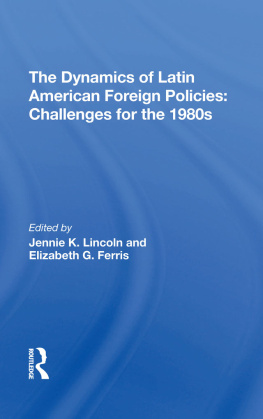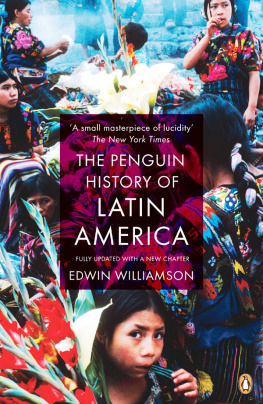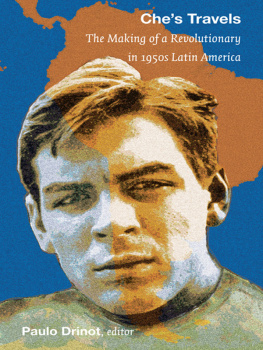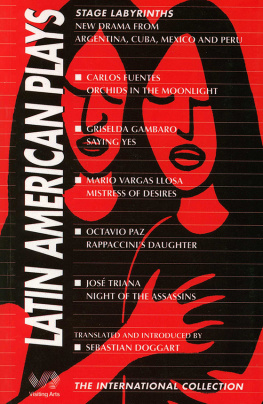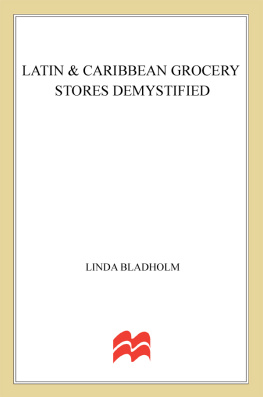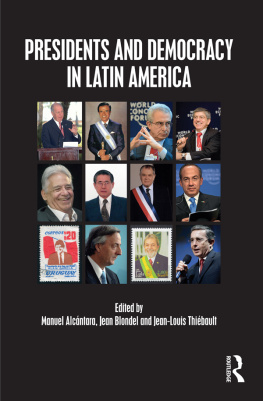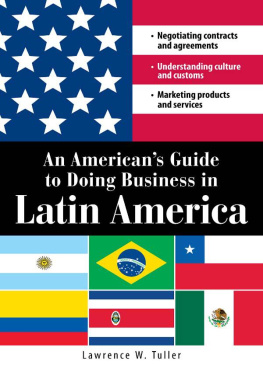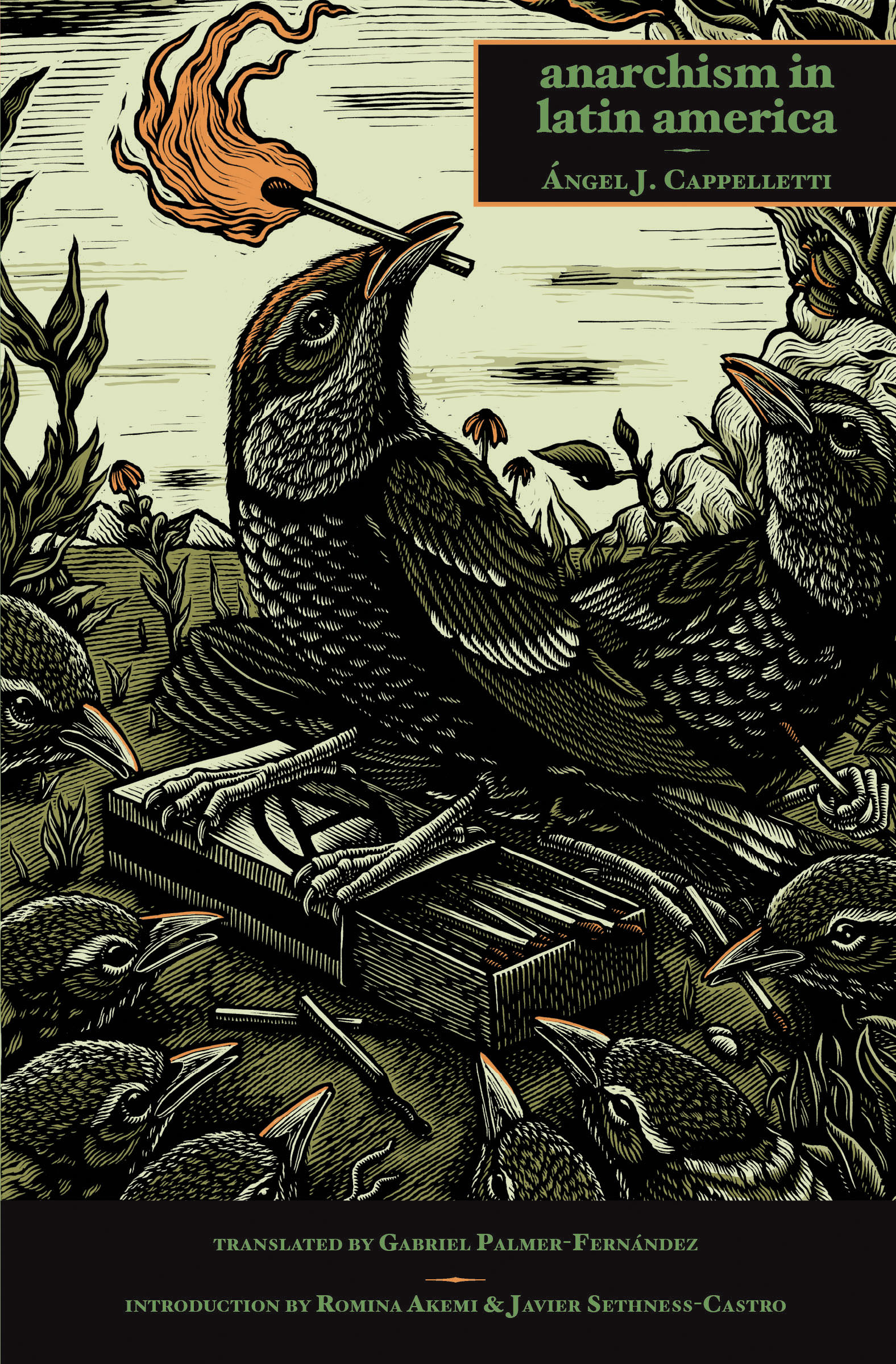The publication of this translation would not have been possible without the good and dedicated work of Zach Blue and AK Press. Zach showed a keen interest in this project from its beginning. When we encountered what seemed to be an insurmountable hurdle thrown in our path by the bureaucracy of a State, he found a way for us to overcome it. I am indebted to Romina Akemi and Javier Sethness-Castro for accepting Zachs invitation to write the Introduction to this volume. I am very grateful for the talented editorial hands first of Molly Toth, of Youngstown, Ohio, and then of Emma Young, of Bloomington, Indiana. My home institution, Youngstown State University, provided me with a Research Professorship to complete this project. I am most gratefuland grateful everydayfor the kindness, friendship, and love of my wife, Sarah V. Lown. These simple words of thanks to them leave much unsaid.
ngel Cappelletti, Biographical Note
ngel Cappelletti was born in 1927 and died in 1995 in Rosario, Argentina. This industrial port city was a major center of anarchist activities beginning in the late 19 th century, when Italian immigrants formed a group called El Miserable. A little later, the anarcho-communist group Ciencia y Progreso was formed in Rosario, and the Italian anarchist paper Demoliamo , as well as the anarcho-feminist La Voz de la Mujer , edited by Virginia Bolten, were published there. In 1890 Bolten headed the first march ever held in Rosario to mark the 1st of May. She carried a red flag with this inscription in black: First of May. Universal Brotherhood. We, the workers of Rosario, abide by the dispositions of the International Labour Committee in Paris. Other anarchist papers published in Rosario at this time were La Verdad (1896), La Libre Iniciativa (18951896), La Federacin Obrera (1896), and La Libera Parola . There were also general strikes in 1901 and 1907, as well as repression, persecution, and execution of militants. Ernesto Che Guevara would be born in Rosario in 1928.
Cappelletti received a doctorate in philosophy from the University of Buenos Aires in 1954 and for the next twenty-seven years taught the history of philosophy, logic, sociology, Latin, Greek, and the history of political ideas at the Universidades de Cuyo y Litoral, Argentina, Universidad de Montevideo, Uruguay, and the Universidad Central y Simn Bolivar de Caracas, Venezuela. He is the author or editor of 40 books, including Utopas antiguas y modernas (Puebla, 1967), Abelardo (Buenos Aires, 1967), El Socialismo utpico (Rosario, 1968), Marco Aurelio (Buenos Aires 1968), La filosofa de Herclito de Efeso (Caracas, 1969), Introducin a Sneca (Caracas, 1973), Introducin a Condillac (Maracaibo, 1974), Cuatro filsofos de la Alta Edad Media (Mrida, 1975), Etapas del pensamiento socialista (Madrid, 1978), El pensamiento de Kropotkin (Madrid, 1978), Ensayos sobre los atomistas griegos (Caracas, 1979), La teora de la propieded en Proudhon (Madrid, 1980), Ciencia jnica y pitagrica (Caracas, 1980), Prehistoria del Anarquismo (Madrid, 1983), La filosofa de Anaxgoras (Caracas, 1984).
The present translation originally appeared as a Preface by Cappelletti to a volume of previously published anarchist writings by Latin American authors. The volume was conceived and begun by Carlos Manuel Rama. At the time of his death in 1982, Rama had completed an initial selection of the material. Cappelletti would conclude the project The volume was scheduled to appear in 1990 through the Venezuelan publisher Biblioteca Ayacucho. But due to several complications it did not appear in print until 1993. Rama was a Uruguayan historian and sociologist. Among his publications are: Historia del movimiento obrero y social latinoamericano contemporneo (1967), Sociologa de Amrica Latina (1970), Las ideas socialistas en el siglo XIX (1976), Sociologa de Amrica Latina (1977), and La ideologa fascista (1979), among others.
Gabriel Palmer-Fernndez
See Appendix B for the entire selection.
Abbreviations
ACAT Asociacin Continental Americana de Trabajadores
AFL American Federation of Labor
AIT Asociacin Internacional de Trabajadores (International Workers Association, IWA)
ALU Accin Libertaria Uruguaya
APRA Alianza Popular Revolucionaria Americana (Peru)
CGS Centro Gremial Sindicalista (Ecuador)
CGT Confederacin General del Trabajo (Argentina)
CGT Confederacin General de Trabajadores (Chile, also Mexico)
COA Confederacin Obrera Argentina (Workers Confederation of Argentina)
COB Confederacin Obrera Brasilea
CORA Confederacin Obrera Regional Argentina
CNT Confederacin Nacional del Trabajo (National Confederation of Labor)
CROM Confederacin Regional Obrera Mexicana
CRRA Comit Regional de Relaciones Anarquistas (Regional Committee of Anarchist Relations)
CTCH Confederacin de Trabajadores de Chile
FACA Federacin Anarco-Comunista Argentina (Argentinean Anarcho-Communist Federation)
FAI Federacin Anarquista Ibrica (Iberian Anarchist Federation)
FAU Federacin Anarquista Uruguaya
FCPM Federacin Comunista del Proletariado Mexicano
FLA Federacin Libertaria Argentina
FOA Federacin Obrera Argentina
FOCH Federacin Obrera Chilena
FOH Federacin Obrera de la Habana
FOI Federacin Obrera Internacional (Bolivia)
FOL Federacin Obrera Local de la Paz (Bolivia)
FORA Federacin Obrera Regional Argentina (Argentine Regional Workers Federation)
FORP Federacin Obrera Regional Paraguaya
FORP Federacin Obrera Regional Peruana
FORU Federacin Obrera Regional Uruguaya (Uruguayan Regional Workers Federation)
FOT Federacin Obrera del Trabajo (Bolivia)
IWA International Workers Association
IWW Industrial Workers of the World
PRC Partido Revolucionario Cubano (Cuba).
PIT-CNT Plenario Intersindical de Trabajadores and Convencin Nacional Trabajadores
UGT Unin General de Trabajadores (General Union of Workers)
USA Unin Sindical Argentina (Syndicalist Union of Argentina)
USU Unin Sindical Uruguaya (Syndicalist Union of Uruguay)
Preface
Anarchism emerged in Europe as an ideology and social philosophy during the first half of the nineteenth century. One of several kinds of pre-Marxist socialist thought, it was essentially a French product and owed its name and first systematic formulation to Proudhon, although it had two powerful predecessors in England and Germany, Godwin and Stirner, respectively. Prior to 1850 in France, as a social movement of the productive classes (workers, artisans, peasants), it assumed a mutualist form. Under Bakunin after the 1860s it appeared in a collectivist form and joined its activities to the First International, gradually becoming the dominant position within the movement. During these decades the majority of organized workers in Italy, France, Spain, Portugal, Switzerland, Belgium, Holland, and elsewhere either were anarchist or professed a closely related revolutionary socialism. Even trade unionism in Great Britain, though of moderate tendencies, was closer to Proudhon than to Marx.
By the 1860s anarchism reached Latin America and took root in a number of activist groups. Sections of the First International formed in the French Antilles; the ideas of Proudhon and Bakunin were disseminated throughout Mexico; and the first organizations of workers, peasants, and students with a libertarian bent were established there. In the 1870s there was a clear presence of anarchist groups on both sides of the Ro de la Plata. For the next half century, anarchism enjoyed a steady even if often irregular history in many Latin American countries. It absorbed the major part of the working classes through unions and resistance societies for several decades in Argentina and Uruguay. In other countries, like Mexico, it played an important role in their political history and armed struggles. In Chile and Peru it sparked the revolutionary dimension of the working class struggle. There is no doubt that even in some countries whose later history failed to produce an organized and significant labor movementsuch as Ecuador, Panama, and Guatemalathere were early workers organizations that went beyond simple mutual aid societies and carried forward the class struggle, and they were anarchist.


